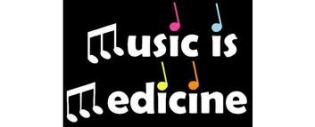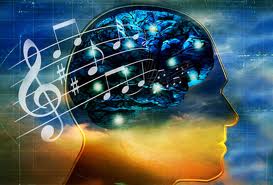Your Brain on Music
Music is the universal language, but is it also a universal healer?
There has always been a mystical connection between music and the mind. Now, more concrete connections are being made between music, brain development, and rehabilitation. According to Michael Thaut, Ph.D, and Gerald McIntosh, M.D., “First, the brain areas activated by music are not unique to music; the networks that process music also process other functions. Second, music learning changes the brain.” Music is a complex language that incorporates several of the brain’s primary cognitive functions including; attention, memory, auditory perception, language processing, and motor control. Thaut and McIntosh point out, “the same area near the front of the brain is activated whether a person is processing a problem in the syntax of a sentence or in a musical piece, such as a wrong note in a melody.” This frontal region of the brain is known as “Broca’s” area, and links music, speech, and movement. Still, the questions remain, how can music change the brain, and does music have the power to heal? Read on.
Charissa, Sherilyn, and Boredin identify the musician’s brain as,”an ideal model for the study of experience-driven neuroplasticity.” In their paper, “Music and Neuroplasticity,” Charissa, Sherilyn, and Boredin establish that, “certain regions of adult musicians’ brains are structurally larger and have more gray matter volume when compared to non-musicians.” Specifically, musicians who begin training before the age of seven reportedly have a larger anterior corpus callosum in comparison with non-musicians. The anterior corpus callosum connects the left and the right hemispheres of the brain, and enhance the interaction between motor, sensory, and cognitive activities. Charissa, Sherilyn, and Boredin provide MRI scans of 70 children between the ages of 6 and 7 , which indicated “no difference in brain structure” between the children prior to being exposed to musical training. The study concludes, “the enlargement of brain structures observed in musicians is most likely due to training and not any predisposition.” In other words, music (and the repeated practice/performance of music) appears to be able to shape the brain’s development.
So, does this necessarily translate into healing? Thaut and McIntosh report that, “the brain changes in structure and function as a result of learning, training, and environmental influence. Exposure and experience will create new and more efficient connections between neurons in the brain in a sort of ‘rewiring’ process.” Thaut and McIntosh began using “rhythmic auditory cues” with mobility impaired patients recovering from stroke, or Alzheimer’s disease. “We hypothesized that by using musical rhythms as timing signals we might improve a person’s motor control during non-musical movement.” Their results were astonishing. “By following the rhythmic cues, patients recovering from stroke were able to walk faster and with better control over the affected side of their bodies. Some of the more complex measures of movement control, such as neuromuscular activation, limb coordination, angle extensions, and trajectories of the joints and centers of body mass also became significantly more consistent, smoother, and flexible.” Dr. Gottfried Schlaug, Director of the Music, Neuroimaging, and Stroke Recovery Laboratories at the Beth Israel Deaconess Medical Center, and Harvard Medical School, reiterates that, “higher order cognitive skills” which rely on the same, frontal regions of the brain as music, can be “positively influenced” as a result of prolonged exposure to music, and/or musical training.
Billy Joel once said, “I think music in itself is healing. It’s an explosive expression of humanity. It’s something we are all touched by. No matter what culture we’re from, everyone loves music.” Music is hardwired into the hearts and ears of people everywhere, and now, science is showing that it can rewire you, too.

